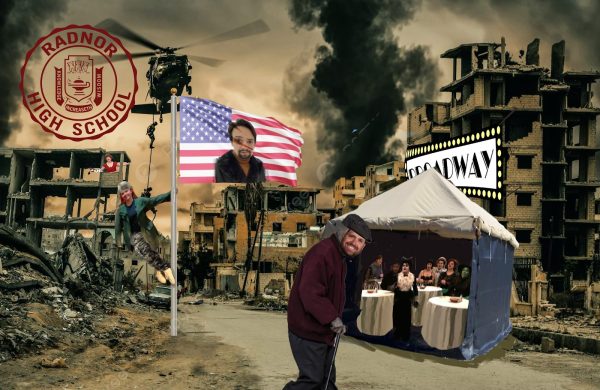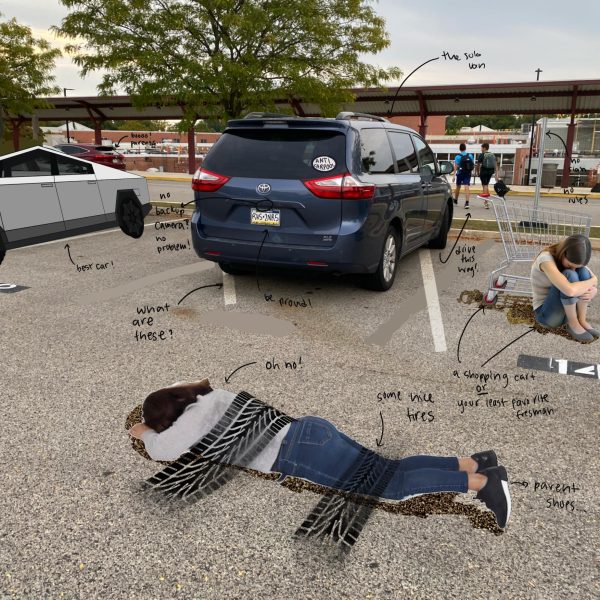Change, Policies, and the America We Can Be
February 22, 2018
This article is part of the Radnorite’s series on the mass shooting at Marjory Stoneman Douglas High School, and the movement it has inspired.
The recent school shooting in Parkland has left a community devastated, a nation further unsure of its future, and a government divided on its course of action. We mourn the loss of innocent high school students and keep their families and community in our thoughts. Beyond thoughts though, we come to question what happens next. How can we save innocent lives? How can we change a climate that allows such horrible tragedies to occur? How can we go beyond politics, beyond rhetoric, and beyond the cycle of mass shootings to achieve meaningful change?
In the aftermath of the tragedy, partisans on both sides rushed to their respective trenches. Demagoguery ensued and respectful discourse relegated to antiquity. On Capitol Hill, events thus far have resembled those after the Las Vegas shooting last October, wherein some lawmakers rushed initially to get gun legislation passed but ultimately allowed it to fade until the next shooting could revitalize the effort. Aside from the President’s recent endorsement of the ban of bump stocks for semiautomatic weapons, little has motivated bipartisan effort. Previously introduced legislation like the Fix NICS bill (a bill designed to ensure state compliance with current gun laws and to enhance the background check system) has stalled while Americans desperately wait for their government to act. No major bipartisan legislation has gained any traction since our own Pennsylvania Senator Pat Toomey and West Virginia Senator Joe Manchin proposed expanded background checks to include unlicensed gun show dealers and online sales in 2013. Senator Toomey, who is among the most influential leaders in the Senate today, recently promised to “take [another] swing” at legislation.
Party loyalty, while not necessarily permanent, has taken priority thus far over policy-based solutions, and in this case, priority over the safety and well-being of our children. A student at the high school in Parkland, David Hogg, summarized this dynamic directly, asserting, “Congress needs to get over their political bias with each other and work toward saving children’s lives.” Emma González, another student, also made clear her skepticism of the current political climate rather frankly, exclaiming at the Not One More rally in Fort Lauderdale, “We call B.S.” Her adamant disapproval sparked the #WeCallBS movement on social media, centered on accountability from politicians and policies that put the interests of America’s youth first.
In order for us to find common ground and lessen the political biases articulated by Mr. Hogg and Ms. González, we need to be weary of actions that inhibit open discourse. At the most basic level of liberal and conservative, it is wrong for members of the left to accuse the right of “not caring” about tragic shootings such as Parkland, and it is wrong for members of the right to accuse the left of being only motivated by a desire to confiscate their firearms. If the left and right both continue to accuse their opponents of impure motives then a productive discourse is impossible.
An influential feature of our system that affects the political side of this discourse is that the stances held by those in our government can change when they are subjected to public pressure. Take the policy trajectory of Bob Casey, our other Pennsylvania senator, for example. He remarked after the 2012 Newtown shooting, “I don’t think new gun laws are going to change us.” However, after continued concerns expressed by Pennsylvanians, he has since noted, “I can’t maintain this position anymore.” Some may chalk this up to Senator Casey just changing his mind as an act of political expediency right after an election (he made the former statement after he won reelection in 2012). This may be valid, but it is apparent that our politicians are not as firm in their personal beliefs as we believe them to be, but instead often become open to policy shifts when their constituents are determined for them. The seemingly rigid wall of political loyalty can be stripped down over time. From here comes the possibility of compromise.
Compromise, although often a buzzword, is one of the only paths we can take to achieve improvement, presumably with limited partisan influence. One such solution brought about from an open dialogue may be the implementation of GVRO laws that have already passed in California, Oregon, and Washington. A GVRO is a “Gun Violence Restraining Order” that allows families, as well as officers of the law, to petition a court to temporarily remove a person’s access to firearms if he or she poses an imminent danger to self or others. This means targeting individual cases as they arise with legal backing. The GVRO can be feasible and attractive to both sides if due process rights are prioritized and court orders are temporary and open to renewal. The balance of legal power with constitutional liberty is essential here.
Another small but potentially impactful change attractive to both ends of the spectrum may be raising the legal age to buy long guns (firearms with longer barrels than other classes) from 18 to 21. Such an age adjustment would mean preventing those like the alleged Parkland shooter from getting their weapons in the first place, while still protecting gun rights asserted by the Constitution. At 21, an individual would most likely be more fit to purchase a firearm than they would be at 18. This type of standard for gun ownership does not infringe upon a person’s personal liberties, but rather raises society’s bar for maturity in firearm purchases. Maturity plays a crucial role in gun ownership, a fact both Democrats, Republicans, and even the gun lobby can agree on.
Tools like the GVRO and the long gun age adjustment are policies that can facilitate bipartisan engagement. These alone will not end the terrible trend of mass shootings, but they may lead us to other compromises down the road that could. In this tense political climate, where the simple phrase “gun control” can either engender passionate support or intense disapproval, finding common ground over time, in both government and in the public discourse, is the only option we have. If it means small policy changes in the short run to permit larger ones in the future, so be it.
Across the 50 states, from Maine to California and Alaska to Hawaii, progress can only occur if an active, open-minded American public faces its setbacks head-on. America is what we make it, through continued revision and attention to the needs of a people united by common ideals and belief in the potential for prosperity. Mass shootings like the one in Parkland highlight a fundamental issue in our society, one that requires action free of the strain of our past and our politics. Explained without hesitation by former President Barack Obama, “Change will not come if we wait for some other person or some other time. We are the ones we’ve been waiting for. We are the change that we seek.”






